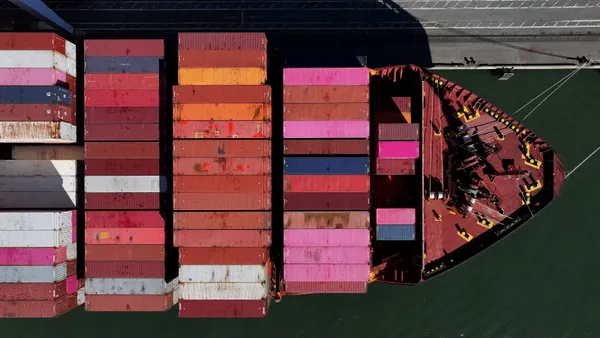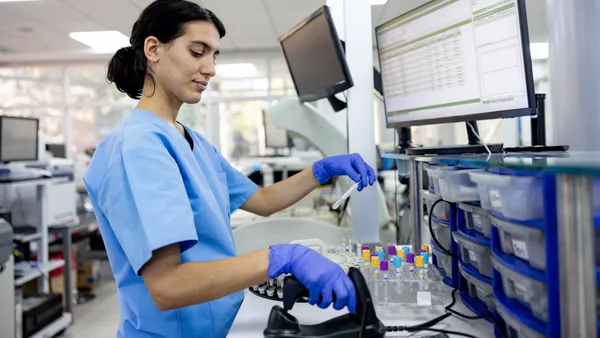Dive Brief:
- Liquid-biopsy maker Grail said about 400 people received a letter in May containing inaccurate information about their Galleri early-detection cancer test results.
- As reported by the Financial Times, the incorrect letter suggested the patients may have developed cancer.
- Grail, in an emailed statement, said the issue was “in no way related to or caused by an incorrect Galleri test result.” Rather, the incorrect letter, sent by Grail’s telemedicine vendor PWNHealth, was inadvertently triggered by a software error, Grail said.
Dive Insight:
Early-detection blood-based tests such as Grail’s Galleri have been heralded as having the potential to significantly advance cancer care in the coming years. Grail says its test screens for 50 types of cancer from a single blood draw.
A number of companies are racing to bring multi-cancer detection tests to market. Gene-sequencing company Illumina acquired Grail two years ago for $8 billion while facing antitrust challenges from U.S. and European regulators, and may be forced to divest the unit. The Grail deal was at the heart of a proxy battle between Illumina and activist investor Carl Icahn that led to the ouster last month of Illumina board chair John Thompson.
Grail blamed a software configuration issue at telemedicine provider PWNHealth for sending the erroneous letters. The program has now been disabled. More than half of the patients who received the letter had not yet had their blood drawn for the Galleri test, the company said.
No patient harm or adverse events were reported due to the issue, and no patient health information was disclosed or breached, Grail said in its statement. The letters were sent from May 10 until May 18. Grail said it immediately began efforts to contact all patients who received the letter until they were successfully reached by phone, email or mail.
“GRAIL takes seriously our commitment to ensure reliable and accurate Galleri test results and the highest quality experience for our patients. To that end, GRAIL has numerous quality control processes to ensure that Galleri test results meet our rigorous reliability and accuracy requirements,” the company said.










